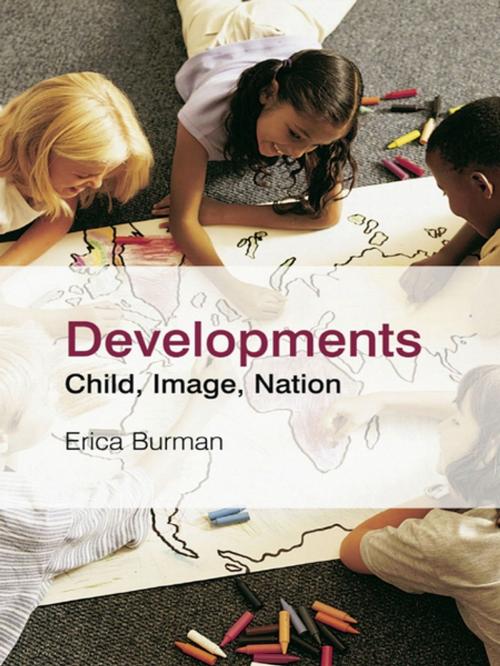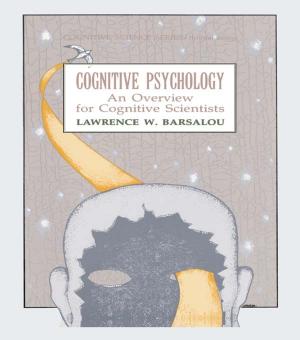Developments
Child, Image, Nation
Nonfiction, Health & Well Being, Psychology, Child & Adolescent, Child Development| Author: | Erica Burman | ISBN: | 9781134183432 |
| Publisher: | Taylor and Francis | Publication: | February 19, 2008 |
| Imprint: | Routledge | Language: | English |
| Author: | Erica Burman |
| ISBN: | 9781134183432 |
| Publisher: | Taylor and Francis |
| Publication: | February 19, 2008 |
| Imprint: | Routledge |
| Language: | English |
How does developmental psychology connect with the developing world? What do cultural representations tell us about the contemporary politics of childhood? What is the political economy of childhood?
This companion volume to Burman's Deconstructing Developmental Psychology helps us to explain why questions around children and childhood - their safety, their sexuality, their interests and abilities, their violence - have so preoccupied the late twentieth and twenty-first centuries. In this increasingly post-industrial, post-colonial and multicultural world, this book identifies analytical and practical strategies for improving how we think about and work with children. Drawing in particular on feminist and postdevelopment literatures, the book illustrates how and why reconceptualising our notions of individual and human development, including those informing models of children's rights and interests, will foster more just and equitable forms of professional practice with children and their families.
The book brings together completely new, previously unpublished material alongside revised and updated papers to present a cutting-edge and integrated perspective to the field. Burman offers a key contribution to a set of urgent debates engaging theory and method, policy and practice across all the disciplines that work with, or lay claim to, children's interests.
Developments presents a coherent and persuasive set of arguments about childhood, culture and professional practice so that the sustained focus across a range of disciplinary arenas (psychology, education, cultural studies, child rights, gender studies, development policy and practice, social policy) strengthens the overall argument of each chapter. It will be invaluable to teachers and students in psychology, childhood studies and education as well as researchers in gender studies. It will also be a must-read for professionals working with children and adolescents.
How does developmental psychology connect with the developing world? What do cultural representations tell us about the contemporary politics of childhood? What is the political economy of childhood?
This companion volume to Burman's Deconstructing Developmental Psychology helps us to explain why questions around children and childhood - their safety, their sexuality, their interests and abilities, their violence - have so preoccupied the late twentieth and twenty-first centuries. In this increasingly post-industrial, post-colonial and multicultural world, this book identifies analytical and practical strategies for improving how we think about and work with children. Drawing in particular on feminist and postdevelopment literatures, the book illustrates how and why reconceptualising our notions of individual and human development, including those informing models of children's rights and interests, will foster more just and equitable forms of professional practice with children and their families.
The book brings together completely new, previously unpublished material alongside revised and updated papers to present a cutting-edge and integrated perspective to the field. Burman offers a key contribution to a set of urgent debates engaging theory and method, policy and practice across all the disciplines that work with, or lay claim to, children's interests.
Developments presents a coherent and persuasive set of arguments about childhood, culture and professional practice so that the sustained focus across a range of disciplinary arenas (psychology, education, cultural studies, child rights, gender studies, development policy and practice, social policy) strengthens the overall argument of each chapter. It will be invaluable to teachers and students in psychology, childhood studies and education as well as researchers in gender studies. It will also be a must-read for professionals working with children and adolescents.















